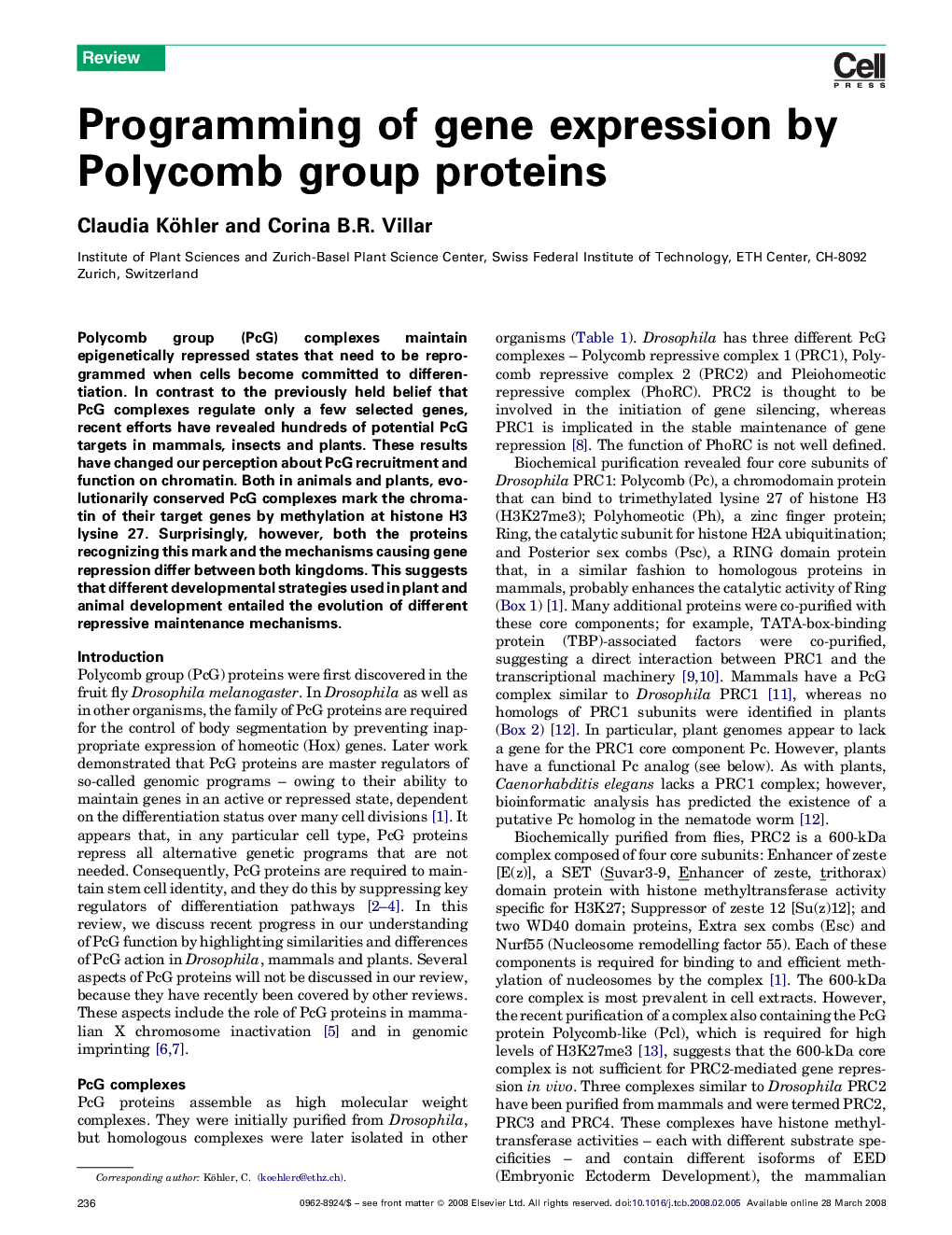| Article ID | Journal | Published Year | Pages | File Type |
|---|---|---|---|---|
| 2205176 | Trends in Cell Biology | 2008 | 8 Pages |
Polycomb group (PcG) complexes maintain epigenetically repressed states that need to be reprogrammed when cells become committed to differentiation. In contrast to the previously held belief that PcG complexes regulate only a few selected genes, recent efforts have revealed hundreds of potential PcG targets in mammals, insects and plants. These results have changed our perception about PcG recruitment and function on chromatin. Both in animals and plants, evolutionarily conserved PcG complexes mark the chromatin of their target genes by methylation at histone H3 lysine 27. Surprisingly, however, both the proteins recognizing this mark and the mechanisms causing gene repression differ between both kingdoms. This suggests that different developmental strategies used in plant and animal development entailed the evolution of different repressive maintenance mechanisms.
